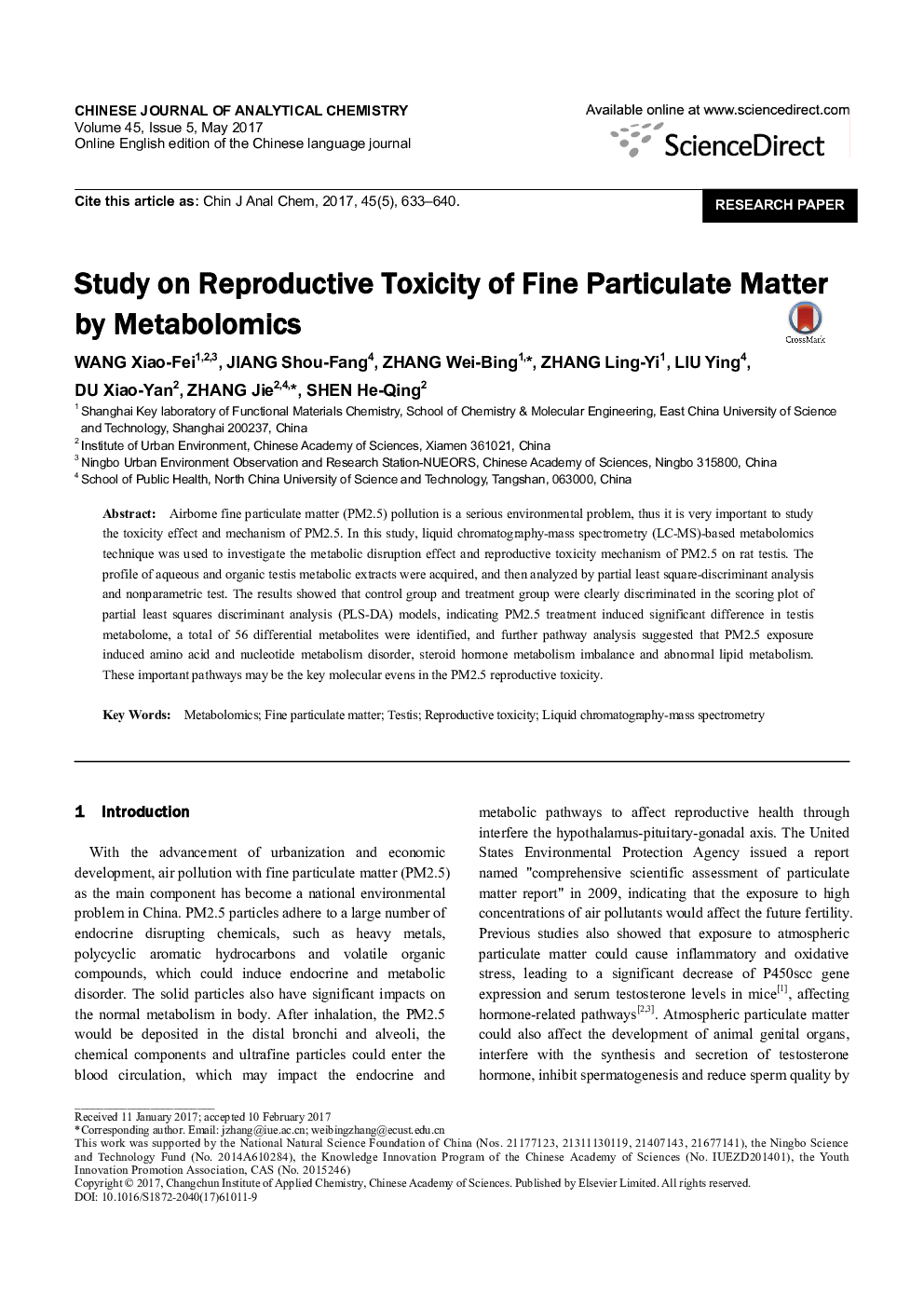| Article ID | Journal | Published Year | Pages | File Type |
|---|---|---|---|---|
| 7564438 | Chinese Journal of Analytical Chemistry | 2017 | 7 Pages |
Abstract
Airborne fine particulate matter (PM2.5) is a serious environmental problem. In this study, a liquid chromatography-mass spectrometry-based metabolomics technique was adopted to investigate the metabolic disruption effect and reproductive toxicity mechanism of PM2.5. The results showed that PM2.5 treatment induced significant alteration in testis metabolome, and pathway analysis suggested that PM2.5 treatment induced amino acid and nucleotide metabolism disorder, steroid hormone metabolism imbalance and abnormal lipid metabolism. These important pathways may be the potential molecular events of PM2.5 reproductive toxicity.
Keywords
Related Topics
Physical Sciences and Engineering
Chemistry
Analytical Chemistry
Authors
Xiao-Fei WANG, Shou-Fang JIANG, Wei-Bing ZHANG, Ling-Yi ZHANG, Ying LIU, Xiao-Yan DU, Jie ZHANG, He-Qing SHEN,
